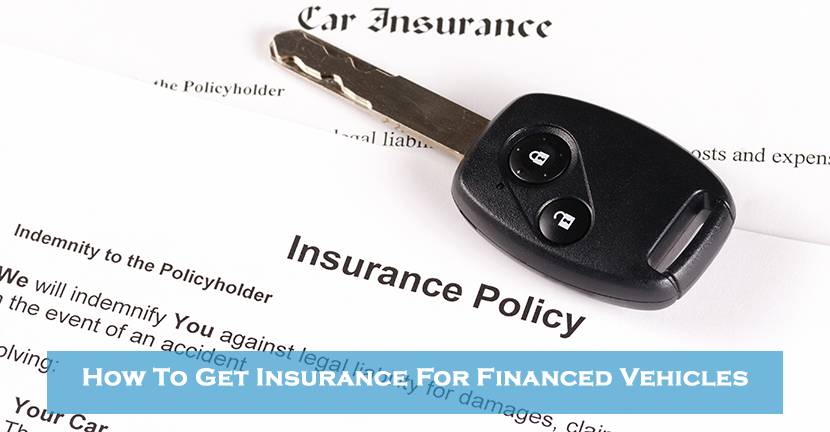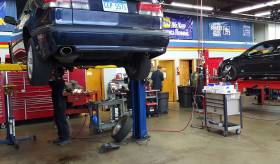Getting Insurance For Financed Vehicles

Every state has minimum requirements for automobile insurance to drive legally. Sometimes these are not the only requirements that a person needs to pay attention to, however. Automobiles are expensive, sometimes being one of the most expensive investments a person has made. Not only that, but they are needed by many people to get to work, make money, and maintain or improve their lifestyle.
When a person finances a vehicle, not only are they taking a loan out, which provides risk for them, but there is also a risk for the financing company. For the financing company to protect themselves, they often require additional insurance amounts in the terms of the contract. In many cases, this includes a few different types of insurance.
What Are Financed Vehicles?
A financed vehicle is a vehicle where a financer or leasing company, possibly including credit unions and banks, pay for a vehicle. They purchase the vehicle from a dealership, and the person who has financed the vehicle will pay them back for that amount, plus interest. The financing company owns the vehicle until it is paid off. There are additional charges that apply, which is how the financer makes their money. This is often done through surcharges and interest. Each contract can be different in regards to its terms, so it can be essential to shop around to find the best insurance rates, lowest surcharges, and best policy overall.
Insurance US is the best place to get the insurance policies you need in order to finance your vehicle. With free quotes for automobile insurance available, from multiple companies, you can get the top rates you want. In order to consider what types of insurance policy you want on your vehicle, including amounts above the minimum limits, you should also consider what your financing company requires.
What Is The Coverage That Is Required For Financed Vehicles?
Each lending company is different. This leads to different requirements as far as what coverage will be required. In addition, these companies will require that you have more than the minimum amount required by law for liability insurance. The minimum limits for automobile insurance in order to drive legally generally include liability insurance, which includes bodily injury liability coverage and property damage liability coverage. Some states do require additional types of insurance coverage, such as uninsured motorist coverage, UIM coverage, personal injury protection, and others.
A company that is providing financing for your vehicle may require these types of insurance coverages, even if they are not required in the laws of your state. Also, there are three other types of insurance coverage that you may be required to get.
The first of these is collision insurance coverage. This covers expenses to repair or replace your vehicle if you are in an accident, regardless of who is at fault. This is important because other insurance types that are required in each state generally only provide coverage for other people’s vehicles. Make sure to look over your insurance policy types to determine what you are covered for with the state's minimums. Also, remember that your financing company may require that you have collision insurance on your plan.
Another type of insurance coverage that is often required by financing companies is comprehensive insurance. This covers things like fire, theft, vandalism, flooding, and other perils that are unrelated to car crashes.
Lastly, many financing providers require that people getting loans have gap insurance. When you purchase your vehicle, it immediately depreciates in value after being driven off the lot. It will continue to depreciate after that over the years. Gap insurance coverage covers the difference between what you owe on your loan and the actual cash value of the vehicle, which can often be less.




Add new comment